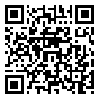BibTeX | RIS | EndNote | Medlars | ProCite | Reference Manager | RefWorks
Send citation to:
URL: http://jcp.khu.ac.ir/article-1-2490-en.html
Mathematics is one of the courses in which students are weak and it causes their academic failure. The aim of present study is to estimate the math anxiety based on cognitive emotion regulation and problem-solving ability in second year students of science. The research method was correlation. The participants of this study were female second year students of science in Yazd. So, 130 girls were selected based on cluster random sampling method and completed math anxiety MARS-R, cognitive emotion regulation CERQ and problem-solving ability PSI questionnaires. Descriptive statistical indices, Pearson correlation coefficient, and step by step multivariate regression were used by the software SPSS V. 20 to analyze the data. The results indicated that although there is an inverse relation between math anxiety scores of students and two dimensions of problem-solving ability such as control characters (r = - 0/249) and confidence in problem-solving (r = - 0/348), the relation between math anxiety scores and negative cognitive emotion regulation is direct and significant (r = 0/327). The findings from regression showed that problem-solving ability and negative dimension of cognitive emotion regulation explained totally 18 percent of variance in math anxiety in level p<0/01, serialization negative direction and positive direction could predict the math anxiety. According to these findings, it's suggested to authorities and math teachers to attempt for increasing math performance of students through decreasing their negative cognitive emotion regulation and increasing their confidence in problem-solving.
Received: 2016/01/28 | Accepted: 2016/04/18 | Published: 2016/08/22
| Rights and permissions | |
 |
This work is licensed under a Creative Commons Attribution-NonCommercial 4.0 International License. |






